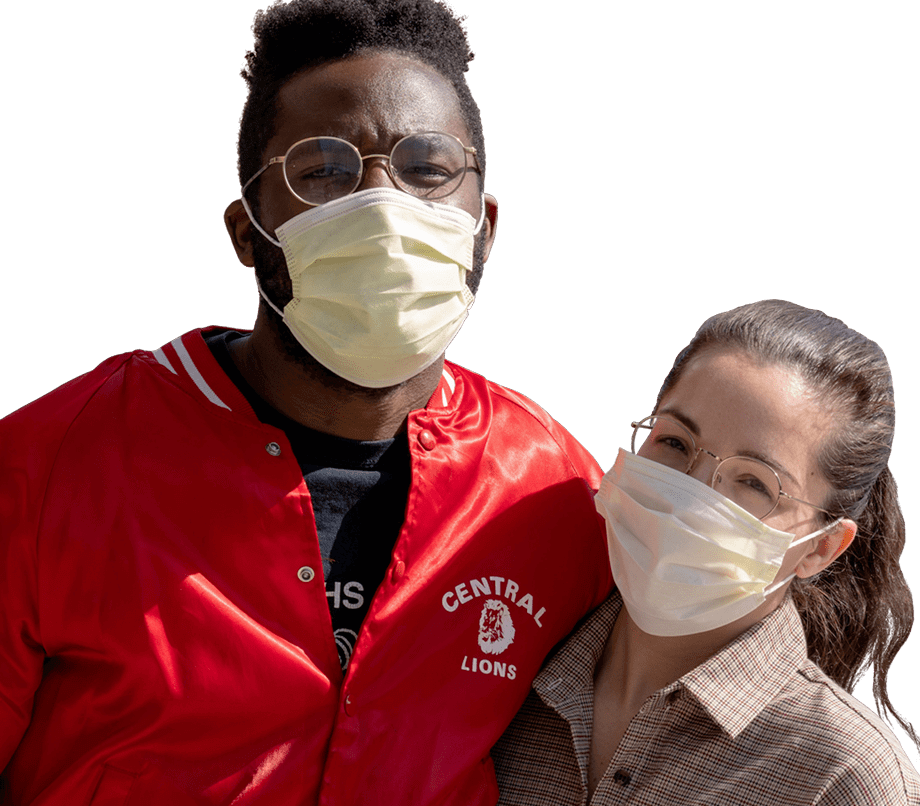Other News This Week
There is life after a sexually transmitted infection (STI) diagnosis. Yes, even if momentarily it feels like there won’t be. You may be experiencing shame, embarrassment, or anger. You may even be stressing out, imagining that you’ll never be loved again, that you might lose your partner, or that you’re going to suffer from cancer or infertility. These fears and emotions are all totally normal. But as upsetting as being diagnosed with an STI may be, it will be okay. That said, you’ll probably need to shift the way you think about STIs. And when you do, you'll realize that life will go on. You can still date, you can still have sex, and you can still be healthy. Here’s how.
Remember: You’re in good company.
First and foremost, having an STI puts you in a group with the majority of Americans. In fact, half of sexually active Americans will have at least one STI by the age of 25. The CDC estimates that every year, there are 20 million new cases of STIs in the United States. About one in six people have HSV-2, the virus that causes genital herpes, and nearly everyone will be infected with HPV (human papilloma virus) at some point in their lives. And the CDC recently issued a report saying that, for the first time since 2006, rates of gonorrhea, chlamydia, and syphilis are on the rise.
It may be true that most people don’t talk about these infections in the same way they’d open up about having the flu — but that doesn’t change the fact that a good chunk of the population has had, does have, or will have an STI.
“Given the prevalence of STIs, the ‘dirtiness,’ shame, and embarrassment we associate with them is pretty unwarranted,” says Edward W. Hook, III, MD, director of the Division of Infectious Diseases at the University of Alabama at Birmingham.
Rethink the stigma.
Ask sex educators, and they will tell you: We live in a culture that freaks out about sex. So it follows that culturally, we freak out about STIs, too — not because they’re especially gross and horrible, but because STIs have to do with sex.
Jenelle Marie Davis, 29, was diagnosed with herpes when she was a teen. Now, as an adult, she is the founder of The STD Project, a website that promotes education and reduces stigma around STDs, and a spokesperson for PositiveSingles.com. “It's ridiculous, really, if you think pragmatically about the shame we inflict upon people who contract STIs,” says Davis. “We don't shame someone for catching the flu, we don't chastise someone for getting strep throat. We empathize with them, and support them, and ask how they’re feeling. But if you get an infection from having sex, we act like it’s okay to judge what the person did to put themselves at risk. It’s not.”
Having an STI doesn’t mean you did something despicable or dirty. It means you had sex — just like so much of the rest of the world.
Know that most STIs can be cured or effectively managed.
Generally speaking, there are three types of STIs — bacterial, parasitic, and viral. Bacterial STIs, like chlamydia, gonorrhea, and syphilis, can usually be cured with a course of simple antibiotics. Similarly, parasitic STIs, like pubic lice, scabies, and trichomoniasis, can also be cured. However, keep in mind that bacterial infections, like chlamydia, can cause serious health complications (like infertility) if left untreated — which is why it’s so important to get screened regularly for STIs and receive treatment if you need it. (For more information about screening, click here).
On the other hand, viral STIs — such as herpes, HPV, and HIV — can’t be cured, but they can be effectively treated and managed.
While the herpes virus remains in the body permanently, the actual outbreaks it causes can be prevented or shortened with medication. “Taking anti-viral medications for herpes dramatically decreases symptomatic outbreaks and reduces the likelihood of spreading it by more than 50%,” Dr. Hook says. “These drugs are some of the safest we’ve ever used, and because they are now generic, often people can get them for 10 to 20 dollars a month.”
HIV is also a viral STI that remains in your body and can be transmitted to your partners. However, with highly effective treatments now available, people can live long and healthy lives with HIV, just like they live with other chronic conditions. Early treatment can improve and protect your health and the health of your partners. In fact, according to a landmark study, early treatment can reduce the risk of transmitting HIV to uninfected partners by 96%. Correct and consistent condom use can also help reduce risk.
If you test positive for HPV, most of the time, the virus will go away on its own. But when it doesn't, HPV can cause genital warts and certain cancers. While there's no treatment available for HPV, there are treatments available for the health problems it can cause.
Learn whom you need to tell.
You don’t necessarily have to go on a John-Cusack-in-High-Fidelity-style search of every person you’ve had sex with and inform them all that you currently have an STI. But if you have a current partner, you’ll certainly want to tell him or her and encourage him/her to get tested, and treated if needed. In terms of notifying past partners, it really depends on your history and the type of STI you have — so talk with your health care provider to get specific guidance.
In terms of future partners, if you have a viral STI like herpes or HIV, you should tell a potential partner before getting sexual. With bacterial STIs (such as gonorrhea and chlamydia) and parasitic STIs (such as pubic lice), it’s different; as long as you’ve been fully treated and cleared by your healthcare provider to have sex again, you don’t have to reveal these past infections to future partners.
Take precautions for sex — but know that you can go for it if you want to.
An STI diagnosis doesn’t doom you to abstinence; you just have to take extra precautions to protect your partner and yourself. For example, if you have herpes, taking the aforementioned anti-viral meds, using condoms, and refraining from sex when you’re having an outbreak will significantly reduce the risk of passing the infection on to a partner. Medications (including anti-viral medications for people who are infected andPrEP for uninfected partners who are at a high risk of contracting HIV) are also available to help reduce the risk of transmitting HIV.
If you have a bacterial STI, Dr. Hook says to refrain from having sex until you and your current partner have finished treatment and have been cleared by your doctor — so that you don’t keep passing it back and forth. And if you’re having vaginal, anal, or oral sex, using condoms is the best way to protect you and your partners from STIs in the future.
Don’t panic.
Having an STI is not who you are; it’s one tiny detail about you. Remember: You’re not in this alone. That's true not only in the "kumbaya" sense of the phrase. You are quite literally in the company of much of the country. And life — and sex — will go on.
For more information about STIs, visitwww.ncshguide.org.



